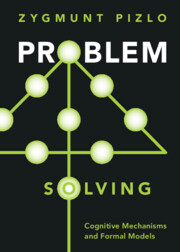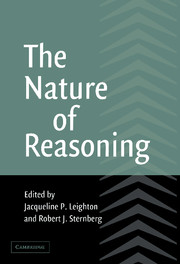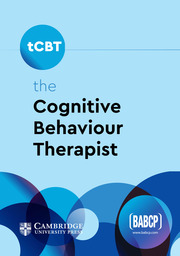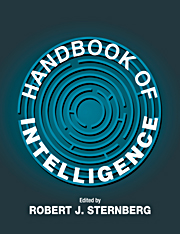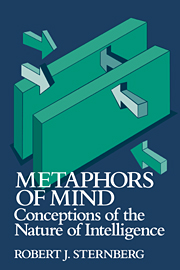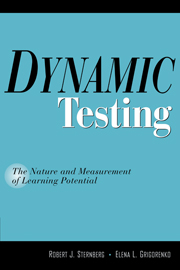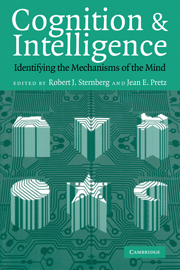
The Psychology of Problem Solving
$51.99 (P)
- Editors:
- Janet E. Davidson, Lewis and Clark College, Portland
- Robert J. Sternberg, Cornell University, New York
- Date Published: June 2003
- availability: Available
- format: Paperback
- isbn: 9780521797412
$
51.99
(P)
Paperback
Other available formats:
Hardback, eBook
Looking for an examination copy?
This title is not currently available for examination. However, if you are interested in the title for your course we can consider offering an examination copy. To register your interest please contact [email protected] providing details of the course you are teaching.
-
Unlike typical books on problem solving that are organized by content areas, such as mathematics and natural science, this book is organized by factors that affect problem solving performance, such as motivation, emotion, intellectual abilities, and working memory. Its goal is to organize in one volume all that is known about problem solving and the factors that contribute to its success or failure.
Read more- The book contains chapters from leading researchers in the field of problem solving
- Unlike other books on this topic, this one focuses on the factors that influence individuals' problem solving performance
Reviews & endorsements
"[P]rovides a contemporary summary of the psychological aspects of problem solving, including such topics as problem recognition, transfer, working memory, and other topics..." American Journal of Physics
See more reviews"The richness of the discussion throughout the various chapters, and the sheer quantity of information used to illustrate each point of view are impressive...an excellent look at both the history of problem solving research and the current state of the field...extremely valuable..." William Altman, Broome Community College, Teachers College Record
"A good book on any subject should summarize the current state of knowledge, and point to the important areas where further work is needed, and this book does both. Overall, this is a very stimulating collection, which all researchers in problem solving will wish to consult." Trends in Cognitive Sciences
Customer reviews
Not yet reviewed
Be the first to review
Review was not posted due to profanity
×Product details
- Date Published: June 2003
- format: Paperback
- isbn: 9780521797412
- length: 408 pages
- dimensions: 231 x 125 x 24 mm
- weight: 0.54kg
- contains: 14 b/w illus. 6 tables
- availability: Available
Table of Contents
Part I. Introduction:
1. Recognizing, defining, and representing problems
2. The acquisition of expert performance as problem solving: construction and modification of mediating mechanisms through deliberate practice
Part II. Relevant Abilities and Skills:
3. Is success or failure at problem solving complex problems related to intellectual ability?
4. Creativity: a source of difficulty in problem solving
5. Insights about insightful problem solving
6. The role of working memory in problem solving
7. Comprehension of text in problem solving
Part III. States and Strategies:
8. Motivating self-regulated problem solvers
9. Feeling and thinking: implications for problem solving
10. The fundamental computational biases of human cognition: heuristics that (sometimes) impair decision making and problem solving
11. Analogical transfer in problem solving
Part IV. Conclusions and Integration:
12. Problem-solving, large/small, hard/easy problem-space/problem-solver: the issue of dichotomization.
Sorry, this resource is locked
Please register or sign in to request access. If you are having problems accessing these resources please email [email protected]
Register Sign in» Proceed
You are now leaving the Cambridge University Press website. Your eBook purchase and download will be completed by our partner www.ebooks.com. Please see the permission section of the www.ebooks.com catalogue page for details of the print & copy limits on our eBooks.
Continue ×Are you sure you want to delete your account?
This cannot be undone.
Thank you for your feedback which will help us improve our service.
If you requested a response, we will make sure to get back to you shortly.
×
